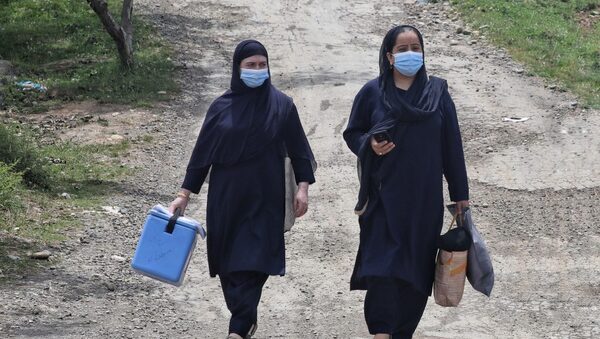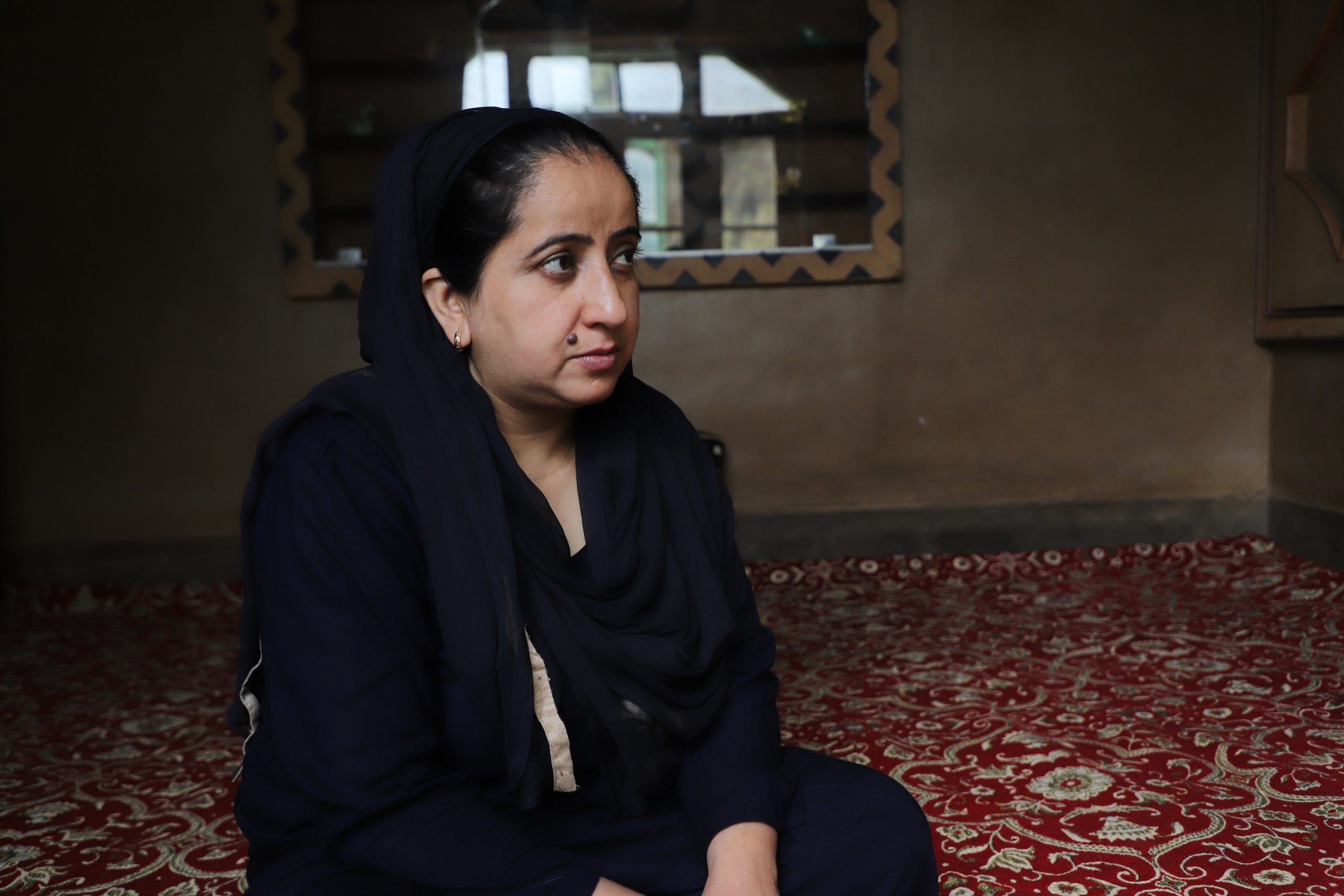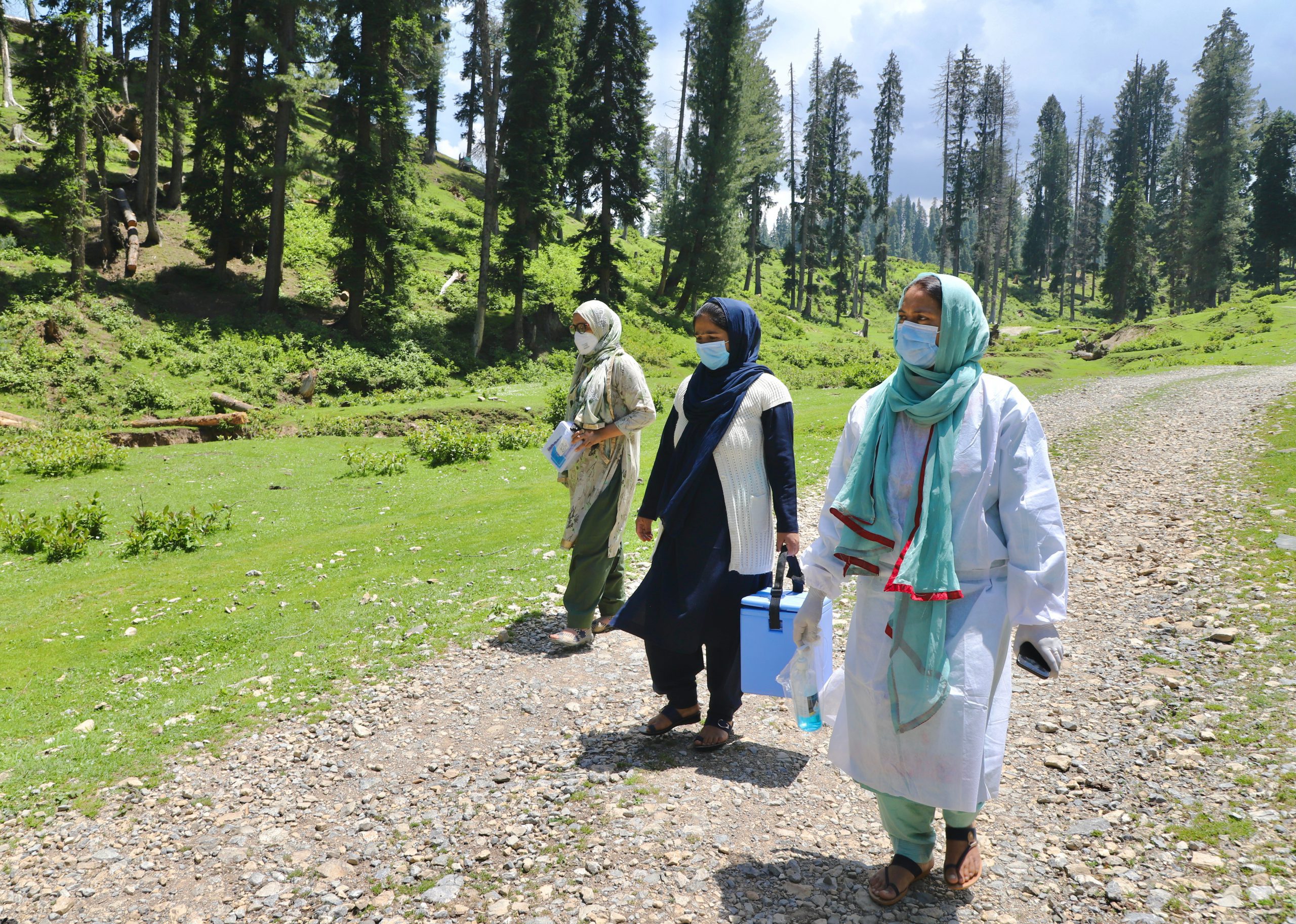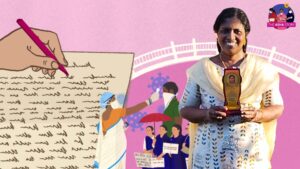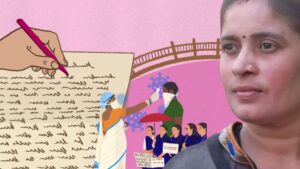59% of Kashmir’s population above the age of 18 have received one dose of the covid vaccine according to the latest data from the Cowin portal. Rural areas in Kashmir are reporting high levels of vaccine hesitancy, especially among women.
Masooda Akhter, an ASHA worker from Nagbal Yusmarg village, 48kms from Srinagar, has been busy in door to door vaccination drives.
Yusmarg has a large population of nomadic tribes with little awareness and high levels of hesitancy. She has not been able to take a single day off from work since the pandemic began last year.
“People often fight with us and don’t let us enter their houses. It takes a lot of effort to motivate the few who agree to get vaccinated” she said.
“Without ASHA workers, it would be impossible for the government to motivate people for vaccination”, said Maal, the ASHA leader from Shopian.
Vaccine hesitancy is a consequence, both of, the rampant misinformation as well as the lack of trust in the policies of the government of India among the Kashmiris.
“ While vaccine hesitancy is a global phenomena, it is compounded by the trust deficit and communication gap between government and people in Kashmir. People feel that the system is run by outsiders” said Dr Sheikh Showkat, a political analyst and a prominent scholar of human rights and international law based in Srinagar.
In fact, over 80% of healthcare workers in Kashmir have not taken the Covid-19 vaccine, claimed the Srinagar based Doctors Association Kashmir (DAK).
Gender gap in vaccination
Gender gap in vaccination is high in Kashmir. Only 40.7% of eligible women have received a single dose of vaccine.
Most women we talked to were unsure whether the vaccination was beneficial at all.
Fehmeeda Bano (55), a homemaker from Pulwama, is one of the 60% of eligible women in Kashmir who has not taken the vaccine yet. She does not trust the government policy on vaccination.
“I have even heard that the vaccination can cause death in two years,” Bano told BehanBox.
Naseema (27), who uses one name, a teacher in a private school in Pulwama town, believes that the Covid vaccine would make her infertile.
“This is a drive towards population control in Kashmir,” she said.
Fear of infertility has emerged as the biggest reason for the high levels of vaccine hesitancy among women, according to Dr Shahnawaz Kaloo, a Kashmir based radiologist. Such fears have seen people in rural Kashmir argue with and attack health care workers who went to administer the vaccine.
“People shut the door to our faces.We have to deal with insults and shouting. Most people believe that we are paid 20,000 to 30,000 rupees to convince them to get vaccinated,” said Poosh Maal.
Despite the efforts of doctors and frontline workers such as ASHAs to counter the misinformation, they still persist.
For years, ASHA workers across Kashmir and the rest of India have been demanding their rights. In recent months, they have gone on strikes in Kashmir, Maharashtra, Karnataka, Delhi and Madhya Pradesh demanding better pay and work conditions.
“Tell me, are we demanding more than what we deserve,” asked Maal.
